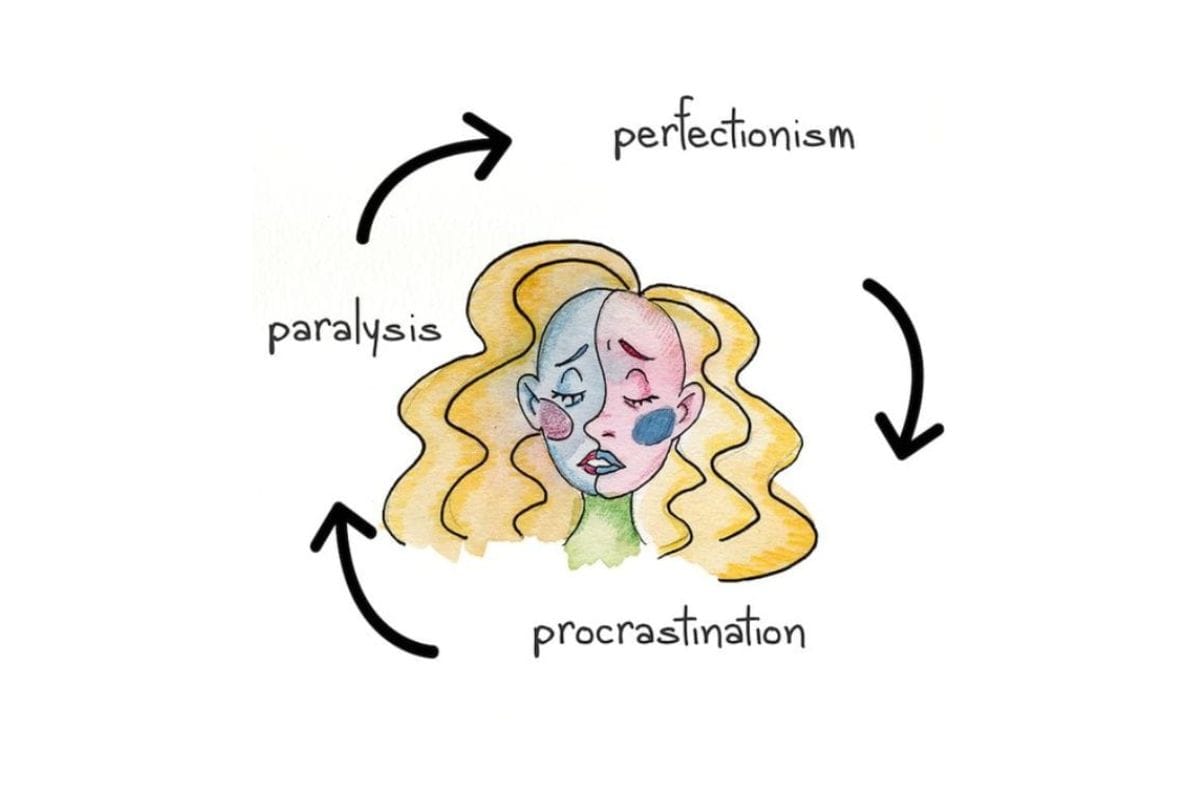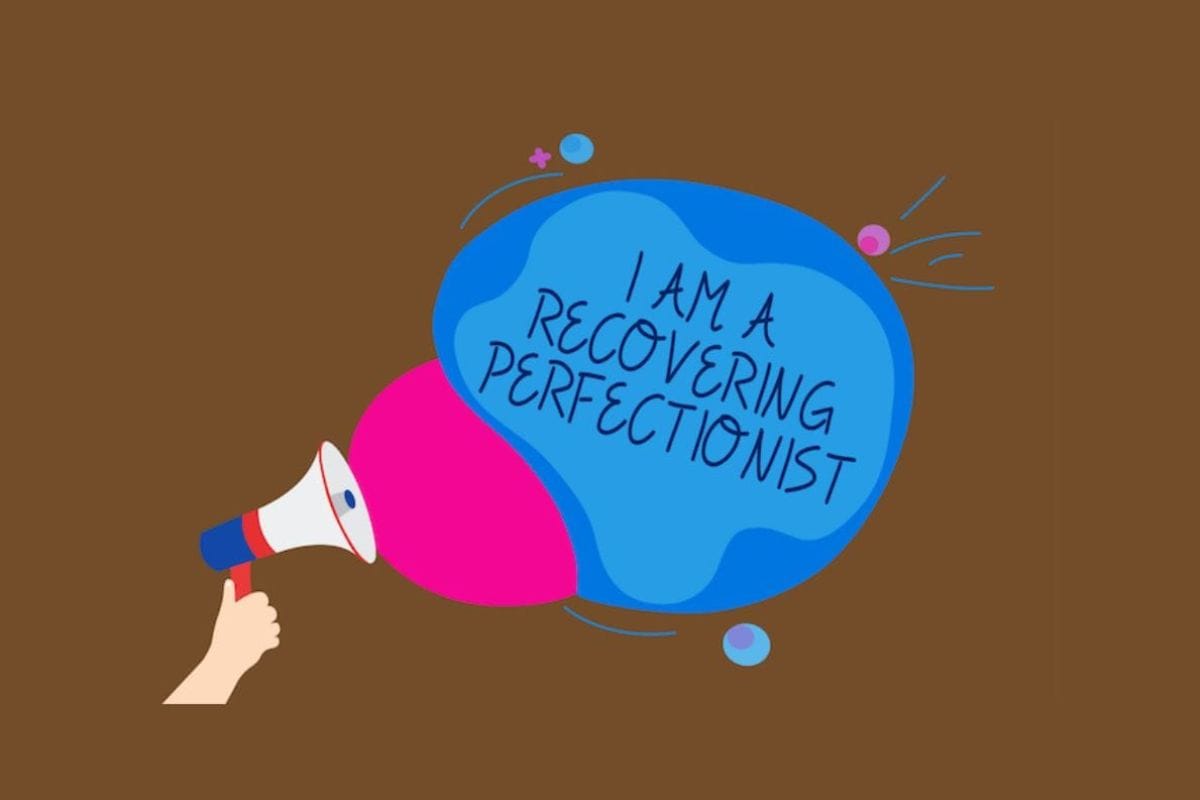Perfectionism has become a pervasive aspect of modern life, especially in the digital age where social media amplifies our desire to present an idealized version of ourselves. With platforms like Instagram and Pinterest showcasing seemingly flawless lives, many individuals feel compelled to meet these unattainable standards, leading to a constant chase for perfection. This pursuit is not only exhausting but also damaging to our mental health and overall well-being.
In today's society, where the bar for success and beauty is often set by heavily curated online personas, the pressure to achieve perfection has never been higher. This obsession is driven by the need for validation, fear of failure, and the belief that perfection equates to worthiness. However, this relentless pursuit can lead to feelings of inadequacy, anxiety, and depression as individuals measure their self-worth against an unrealistic standard.
Let's delve into the deeper implications of this obsession with perfection, exploring its roots, the psychological impact, and how we can begin to shift our focus from unattainable ideals to a more balanced and fulfilling life.
The Roots of Perfectionism

Perfectionism is deeply rooted in cultural, psychological, and social influences, and understanding these roots is crucial to addressing its impact.
Cultural Influences
Cultural expectations play a significant role in shaping perfectionism. In many societies, there is a high value placed on success, achievement, and image. From a young age, individuals are often taught that their worth is tied to their accomplishments and how they are perceived by others. Media portrayal of "ideal" lives—especially through advertisements, movies, and television—reinforces these standards.
The constant exposure to images of success, beauty, and flawlessness creates societal pressure to conform, pushing people toward an unattainable ideal. This pressure is compounded by cultural narratives that equate perfection with happiness and fulfillment, leading many to believe that anything less than perfect is unacceptable.
Psychological Factors
Psychological underpinnings also drive perfectionism, particularly the fear of failure, the desire for approval, and the need for control. People who struggle with perfectionism often have underlying beliefs that they are not "good enough." These beliefs can stem from early experiences, such as parental expectations, where love and approval were conditional on performance.
As adults, these individuals may continue to adhere to rigid standards, believing that their value is contingent on being flawless. The fear of making mistakes or being judged harshly by others can lead to excessive self-criticism, anxiety, and even depression. This mindset creates a cycle where the pursuit of perfection becomes a coping mechanism to avoid feelings of inadequacy.
The Role of Social Media
Social media has amplified perfectionist tendencies by providing a platform where curated, idealized versions of life are constantly on display. Platforms like Instagram and Facebook allow users to present a polished image of their lives, often filtered and edited to appear flawless. This creates an environment ripe for comparison, where individuals measure their self-worth against these idealized images.
The constant bombardment of "perfect" lives on social media can lead to feelings of inadequacy and the belief that one must meet these standards to be accepted or admired. This phenomenon is particularly pronounced among younger users, who are more vulnerable to social comparison and the pressure to conform to these ideals.
The Dark Side of Perfectionism

Perfectionism, often seen as a positive trait, can have significant negative consequences, particularly when it becomes excessive. Let's delve into the mental health impacts, how it can lead to paralysis by analysis, and the strain it places on relationships.
Mental Health Impacts
Perfectionism has a profound effect on mental health. The relentless pursuit of flawlessness can lead to chronic stress, as individuals constantly push themselves to meet unrealistic standards. This stress often manifests as anxiety and depression. Studies show that perfectionists are more prone to experiencing intense feelings of inadequacy and fear of failure, which can result in persistent anxiety.
The constant pressure to be perfect can also lead to burnout, a state of physical, emotional, and mental exhaustion caused by prolonged stress. Over time, the weight of these expectations can cause perfectionists to experience significant mental health challenges, including severe depression and even suicidal ideation in extreme cases.
Paralysis by Analysis
The pursuit of perfection can also lead to "paralysis by analysis," a state where individuals become so obsessed with making the "right" decision or executing a task perfectly that they end up taking no action at all. This fear of making mistakes or being judged harshly can cause procrastination, where tasks are delayed or avoided entirely because the individual fears they won't meet their own high standards.
This inaction not only prevents progress but also reinforces feelings of inadequacy, creating a vicious cycle where the individual feels increasingly trapped by their own perfectionism.
Strained Relationships
Perfectionism can have a detrimental impact on personal and professional relationships. In personal relationships, perfectionists may have unrealistic expectations of themselves and others, leading to constant disappointment and dissatisfaction. This can cause tension and conflict, as loved ones may feel they can never meet the perfectionist's high standards. In the workplace, perfectionism can lead to difficulties in collaboration, as perfectionists may struggle to delegate tasks or may become overly critical of colleagues.
This can result in strained relationships, a lack of trust, and a toxic work environment. Over time, the pressure of maintaining perfect relationships can lead to isolation and loneliness, as perfectionists may push others away due to their impossibly high expectations.
Why Perfection is an Illusion

Subjectivity of Perfection
Perfection is a highly subjective concept, one that varies greatly depending on individual perspectives, cultural backgrounds, and personal experiences. What one person considers perfect might be entirely different from another's idea of perfection. This subjectivity stems from the fact that perfection is often an idealized standard that we set for ourselves, influenced by our upbringing, values, and the societal norms we are exposed to.
For example, a person might view a flawlessly clean and organized home as a sign of perfection, while another might prioritize a home that feels lived-in and comfortable. Similarly, in creative fields like art and design, what one critic sees as a perfect masterpiece, another might dismiss as lacking originality. This diversity in perception highlights that perfection is not a universal truth but rather a personal interpretation that can never be fully achieved because it is inherently based on subjective ideals.
The Imperfection of Life
Philosophical and cultural perspectives have long recognized the value of imperfection as an essential part of the human experience. In many philosophies, including those rooted in Eastern traditions like Buddhism and Japanese aesthetics, the idea of "wabi-sabi" embraces beauty in imperfection and transience. Wabi-sabi celebrates the flawed, the incomplete, and the impermanent as natural and authentic aspects of life. This philosophy teaches that life is inherently imperfect, and it is in these imperfections that true beauty and meaning can be found.
Similarly, Western philosophical traditions have also explored the concept of imperfection. Existentialist thinkers like Jean-Paul Sartre and Albert Camus have argued that life is inherently flawed and unpredictable, and it is through embracing these imperfections that individuals can find freedom and authenticity. These perspectives suggest that the pursuit of perfection is not only futile but also counterproductive, as it distracts us from appreciating the richness of life as it truly is.
Mistakes and flaws are often the catalysts for growth and innovation. History is filled with examples of "happy accidents" where errors or imperfections led to groundbreaking discoveries and creative breakthroughs. From penicillin to the art of Jackson Pollock, the value of imperfection is evident in countless areas of life. Acknowledging and accepting imperfection allows us to live more fully, without the constant pressure to conform to unattainable ideals.
Breaking Free from the Perfection Trap

- Embracing imperfections as part of one’s unique identity allows for personal growth and self-acceptance. Instead of focusing on flawless outcomes, appreciating the journey and the lessons learned along the way can lead to a more fulfilling and authentic life.
- Practices like mindfulness and self-compassion are powerful tools for managing perfectionist tendencies. Mindfulness helps individuals stay present and aware, reducing the anxiety that comes with striving for perfection. Self-compassion involves treating oneself with kindness during times of failure or difficulty, and recognizing that mistakes are part of the human experience. These practices help in building a healthier self-image and reducing the harsh self-criticism that perfectionists often face.
- Setting realistic, achievable goals is crucial for overcoming perfectionism. Understanding that failure is a natural part of the learning process allows individuals to set goals that are challenging yet attainable. By doing so, they can focus on steady progress rather than the unattainable ideal of perfection, leading to more consistent and sustainable success.
Practical Tips for Letting Go of Perfectionism
- Regularly disconnect from social media platforms that promote unrealistic standards. Curate your feed to include content that promotes authenticity and imperfection. This can reduce the pressure to meet unattainable ideals and help you focus on what truly matters.
- Modify your environment to reduce perfectionism triggers, such as decluttering spaces to prevent obsessive tidiness or choosing not to engage with overly critical or judgmental people.
- Engage in exercises that promote self-kindness. When you make a mistake, treat yourself with the same compassion you would offer a friend. Techniques like writing a self-compassion letter to yourself can also be effective in building a kinder self-image.
- Use daily affirmations that emphasize self-acceptance and progress, such as "I am enough just as I am" or "Mistakes help me grow." These affirmations can be powerful in shifting your mindset from self-criticism to self-compassion.
- Perfectionists often overcommit, leading to stress and burnout. Practice setting boundaries by saying no to additional tasks or responsibilities that may overwhelm you. Prioritizing what’s most important helps focus your energy on meaningful activities rather than spreading yourself too thin.
- Use time management tools like the Pomodoro Technique to break tasks into manageable chunks, ensuring you focus on progress rather than perfection. This can help prevent the exhaustion that often accompanies perfectionism.
- Set aside time each week to reflect on your achievements and areas of improvement. Ask yourself questions like, "What did I learn from this experience?" and "How can I grow from this?" Reflection encourages a growth mindset and reduces the pressure to be perfect.
- Practice visualization techniques where you picture yourself succeeding with imperfections. Visualizing a positive outcome despite flaws can reduce anxiety and build confidence in your abilities.
- Find someone you trust, such as a friend or mentor, to share your struggles with perfectionism. Regularly check in with them to discuss your progress and challenges, which can help keep you grounded and provide encouragement.
- Consider joining a support group for perfectionists, where you can share experiences and strategies with others who understand your struggles. These groups can offer valuable insights and a sense of community.
Embracing imperfection allows us to connect more deeply with ourselves and others, fostering genuine relationships and a more fulfilling life. By letting go of unrealistic standards, we open ourselves to new experiences, growth, and self-compassion. This shift in perspective is essential for building resilience and achieving true personal development.
As you move forward, remember that progress, not perfection, is the key to a balanced and meaningful life. Celebrate your efforts, learn from your mistakes, and give yourself the grace to be imperfect. In doing so, you'll find greater happiness, peace, and fulfillment on your journey.
Also Read:















